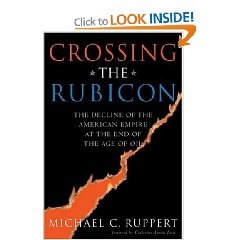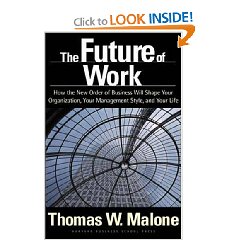Michael C. Ruppert
Edited 30 June to add links to ten books and observe that rankism is bad, but providing credentials to outweigh the ridicule that is used against books such as this (also rankism from Cheney et al) is not bad.
As the #1 Amazon reviewer for non-fiction about global issues and national security (#66 over-all), as a former spy, founder of the Marine Corps Intelligence Command, and CEO and proponent for Open Source Intelligence (OSINT), I think I have a good foundation for evaluating this book. It is so compelling and so troubling that I was obliged to create an eight-page worksheet to ensure I understood the details.
The author alleges that Dick Cheney personally oversaw the 9-11 scenario, with largely fabricated hijackers used by the U.S. military as OPFOR exercise personnel and aided by Israel and Saudi Arabia, that most of the so-called hijackers were not actually on the airplanes; that the two airplanes hitting the WTC were flown by remote control in at least the final minutes from WTC 7 where the Secret Service (Cheney's personal vehicle for running the government) and CIA had their offices; that all three buildings, including WTC 7 which was not hit at all were brought down by controlled explosions, and the Pentagon was hit by a missile aided by a homing device, not Flight 77, which was put down elsewhere. (He notes that Congress was not evacuated, suggesting that either Cheney was incompetent or he knew the missile would hit the homing device in the Pentagon.)
Bottom line: he has NOT provided enough evidence to convict Cheney, but he HAS provided enough evidence to suggest that the 9-11 Commission was very derelict in its duties; that very select elements of the U.S. Government are engaging in a cover-up after facilitating the murder of U.S. citizens; and that a public investigation and trial of Dick Cheney are required.
Here are just a few highlights from this very complex and earnest book:
1) The end of cheap oil is a global crisis. Central Asian reserves were thought to be a temporary respite from global chaos. When this was known not to be the case, in 2000, Wall Street cashed out and allowed the public to bear the brunt of the stock market crash, and the Clinton Administration began to develop Al Qaeda, with Saudi Arabia and Israel, as a covert operation. I am more inclined to believe we allowed Al Qaeda to develop, rather than nurtured them deliberately.
2) Wall Street depends heavily on drug money for liquidity. When the Taliban killed the opium crop in Afghanistan, this was a form of economic warfare against Wall Street's immorality, and they were more than glad to support a U.S. invasion of Afghanistan which had the direct result of jumping Afghanistan's contribution to global heroin from 0 to 80%, with all that money going to Wall Street. Stunningly, the author reports that the head of the Stock Exchange traveled to Colombia to invite the FARC to invest its drug money in US stocks–the “ultimate cold call.” Specific companies associated with laundering drug money through off-book deals include HP, Ford, Sony, GM, Whirlpool, GE, and Philip Morris.
3) The author provides a very compelling case for the possibility that there are two CIA's–a very small elite that work for Wall Street, and were until recently led by Buzzy Krongard as Executive Director of CIA (his “former” firm did most of the puts on United Airlines and profited greatly from 9-11), and a “lip-service” CIA that bumbles around. The links that he establishes between oil companies and logistics support companies to the U.S. military, and their importation of drugs that seem to explode anytime CIA goes into Laos or Afghanistan or Colombia or anywhere else in a big way, are remarkable. He has very specific details, including references to drugs going to oil rigs off New Orleans and then directly in through the most corrupt police force in the country.
4) Congress passed the Patriot Act without reading it.
5) Massive deception has occurred in relation to terrorism. The U.S. refused multiple offers from both the Taliban and Somalia to deliver Bin Laden–everything about post 9-11 has been about damage control, not investigation; the Kean Commission was riddled with conflicts of interest that the author discusses in detail.
6) Specific corporations are named that appear to merit investigation, including Acxiom, Brown & Root, Carlyle, Goldman Sachs, Halliburton, DynCorp, Lockheed, and Raytheon. One corporation, from Israel, broke its WTC lease at great expense the week prior to 9-11.
7) Numerous individuals are named who were not properly interviewed by the 9-11 Commission. Both those on watch and off watch (e.g. BGen Winfield who asked to be relieved from 0830 to 1100 from his post as director of the national military command center) have not been grilled. Mayo Shattuck of Alex Brown resigned on 12 September. Dave Frasca, the FBI leader that blocked all investigations, Admiral Abbott, key person for Cheney, Karl Inderfurth, General Ahmad from Pakistan ($100K to Al Qaeda in US the week before the attack), a whole host of people were simply not investigated.
8) This is massive evidence of sustained fraud by Wall Street, mortgage companies, and others, inclusive of schemes to draw money out of the U.S. Government (i.e. from the taxpayer) through Housing and Urban Development mortgage fraud in drug-affected neighborhoods, and from the Department of Defense. The author alleges that by his detailed estimate, Wall Street has looted three trillion dollars from the U.S. Treasury. As a side note, he points out that Enron's records were moved to Switzerland in what could be a deliberate cover-up of their role in all of this.
9) Murder hangs heavy in this book. Lest anyone believe this is a fairy tale, the author ends the book with a copy of Operation Northwind, the JCS plan from 13 March 1962, to murder Americans in a series of events designed to provide a pretext for invading Cuba.
I cannot conclude that Cheney is guilty. I am completely persuaded that Cheney should be indicted, investigated, and tried by a jury of his peers, We the People.
Vice: Dick Cheney and the Hijacking of the American Presidency
The One Percent Doctrine: Deep Inside America's Pursuit of Its Enemies Since 9/11
9/11 Synthetic Terror: Made in USA, Fourth Edition
Resource Wars: The New Landscape of Global Conflict With a New Introduction by the Author
Imperial Hubris: Why the West is Losing the War on Terror
Game Without End: State Terror and the Politics of Justice
Robert Maxwell, Israel's Superspy: The Life and Murder of a Media Mogul
Lost History: Contras, Cocaine, the Press & ‘Project Truth'
Fog Facts: Searching for Truth in the Land of Spin
The New Craft of Intelligence: Personal, Public, & Political–Citizen's Action Handbook for Fighting Terrorism, Genocide, Disease, Toxic Bombs, & Corruption









